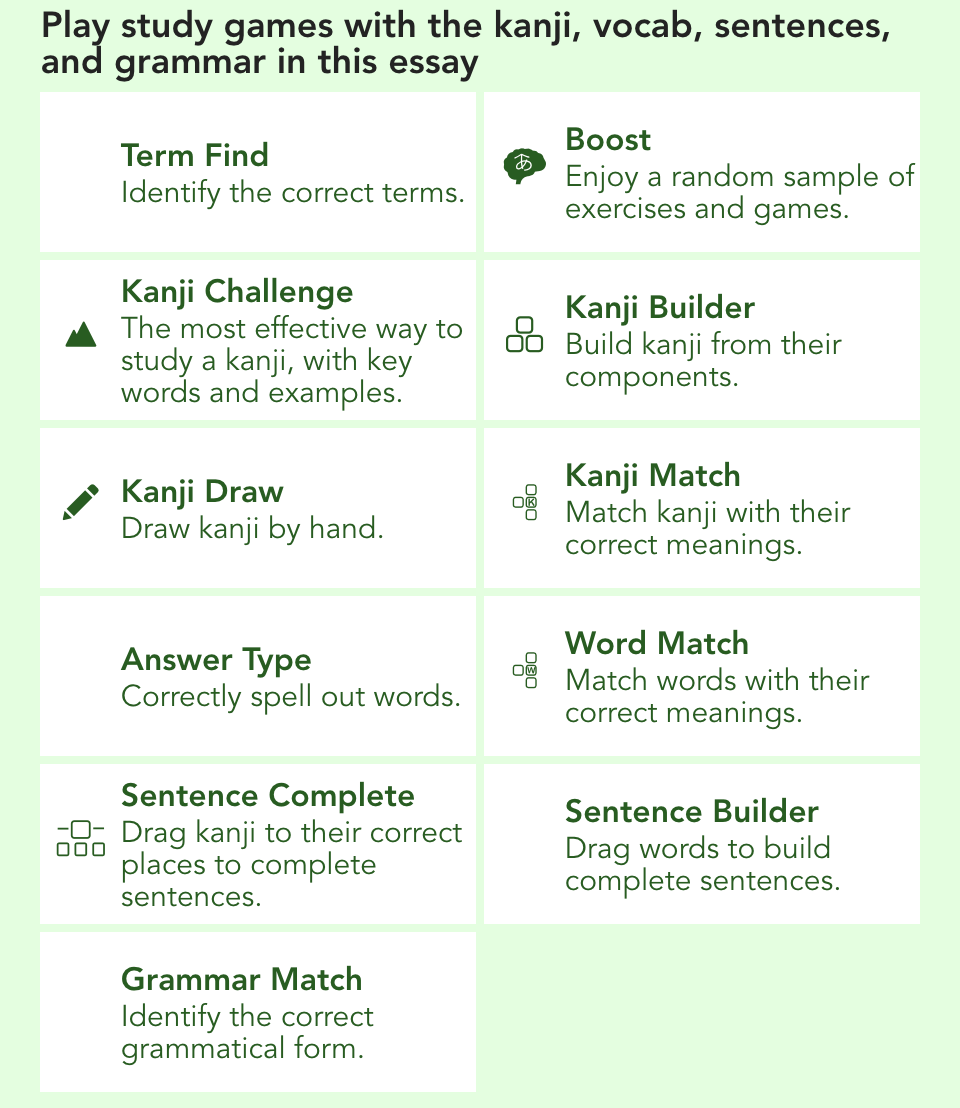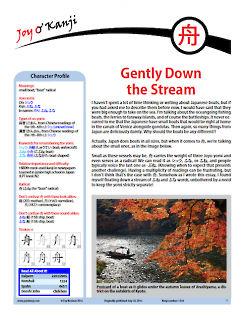舟
small boat; "boat" radical
Kanji 1354
Thank you for visiting this Character Home Page. Below you'll find a synopsis of the essay. If you wish to read the full text, the PDF of the essay is available for purchase to the right.
Find out how to talk about small, hand-propelled boats, and learn about Japanese boats across the ages, from dugout canoes to washtub boats to small straw boats that play a key role during Bon. See why a book about a retiree unnerved Japan, and learn about a famous story in which a man delights in being arrested. Also learn a boat-related expression for traditional rivals.
Revision history:
Jan. 12, 2024: p. 8: I removed all references to 湯舟 (ゆぶね: (1) bathtub; (2) boat with a bathtub rented to customers) because Japanese-Japanese dictionaries include the 湯船 and 湯槽 renderings of that word, not 湯舟.
Mar. 22 and 24, 2023: pp. 20 and 21: Slightly changed some breakdowns and translations to reflect the proper part of speech.
Jan. 13, 2023: p. 15: The yomi of 十隻 in a sample sentence was wrong, but it’s a moot point now. I made the sentence more realistic, shrinking the boat count to 三隻 (three large boats). I also deleted the で. In addition, I changed the definitions of 舟艇 to “large boat; large watercraft.” Finally, I enhanced the comment about -隻 and mentioned -艘 as the counter for smaller boats.
Feb. 2, 2022:
- p. 2, Etymology Box: Updated the Henshall etymology and the Sears link.
- p. 20: Deleted the etymology of 般 because the most compelling analysis of that kanji in Henshall’s updated version focuses on how it can mean “carry,” whereas it mainly represents “overall; all; period of time” and doesn’t mean “carry” in even one contemporary word.
- p. 20: Added a link to the Kanshudo games.
July 10, 2015: Originally published.



Comments